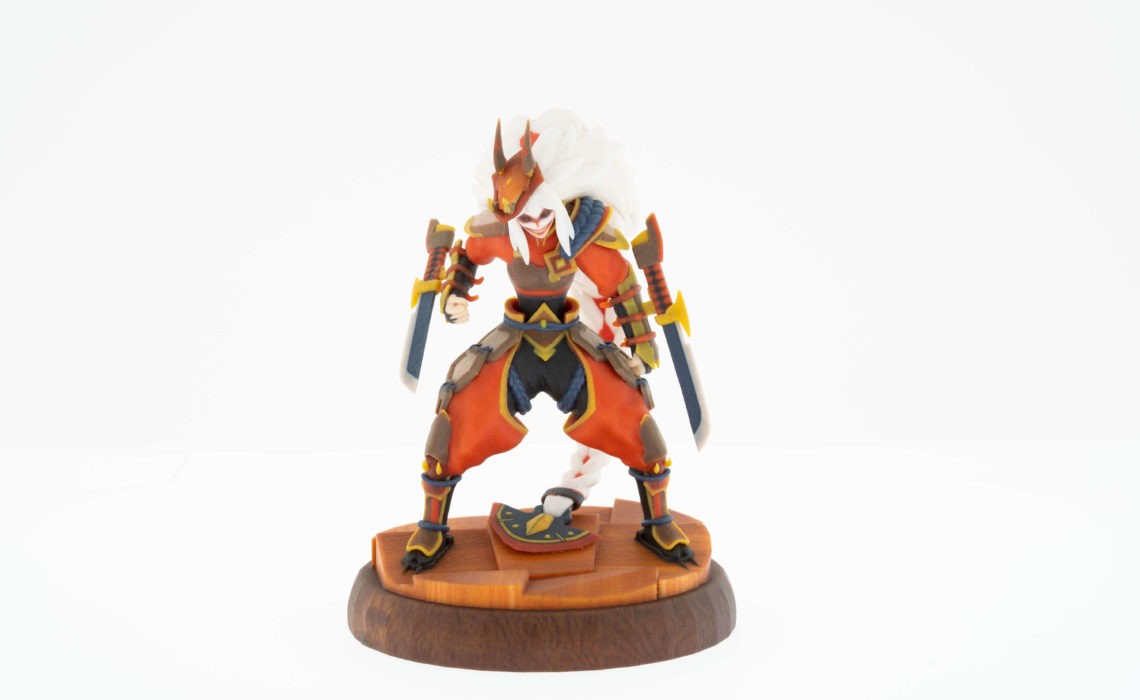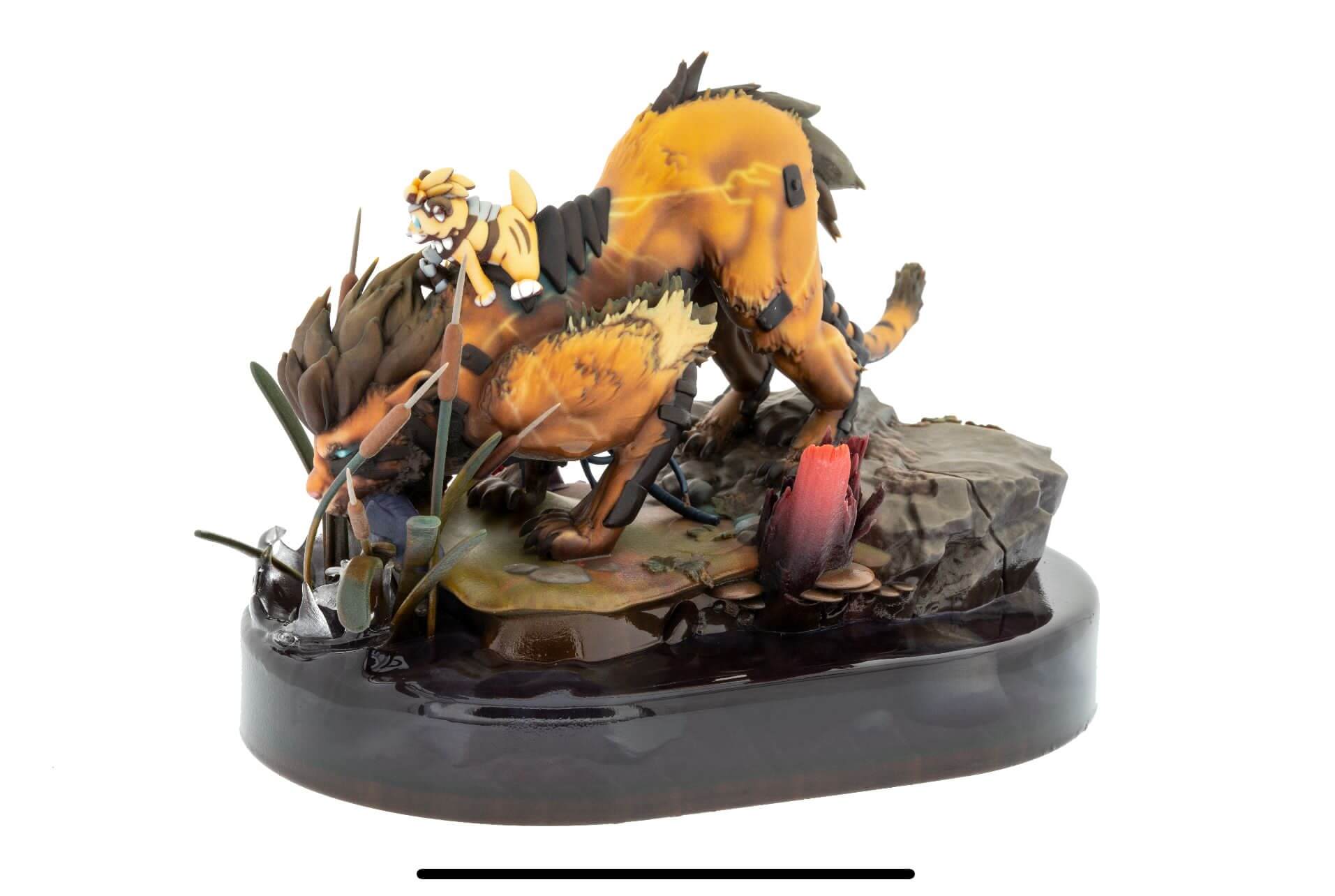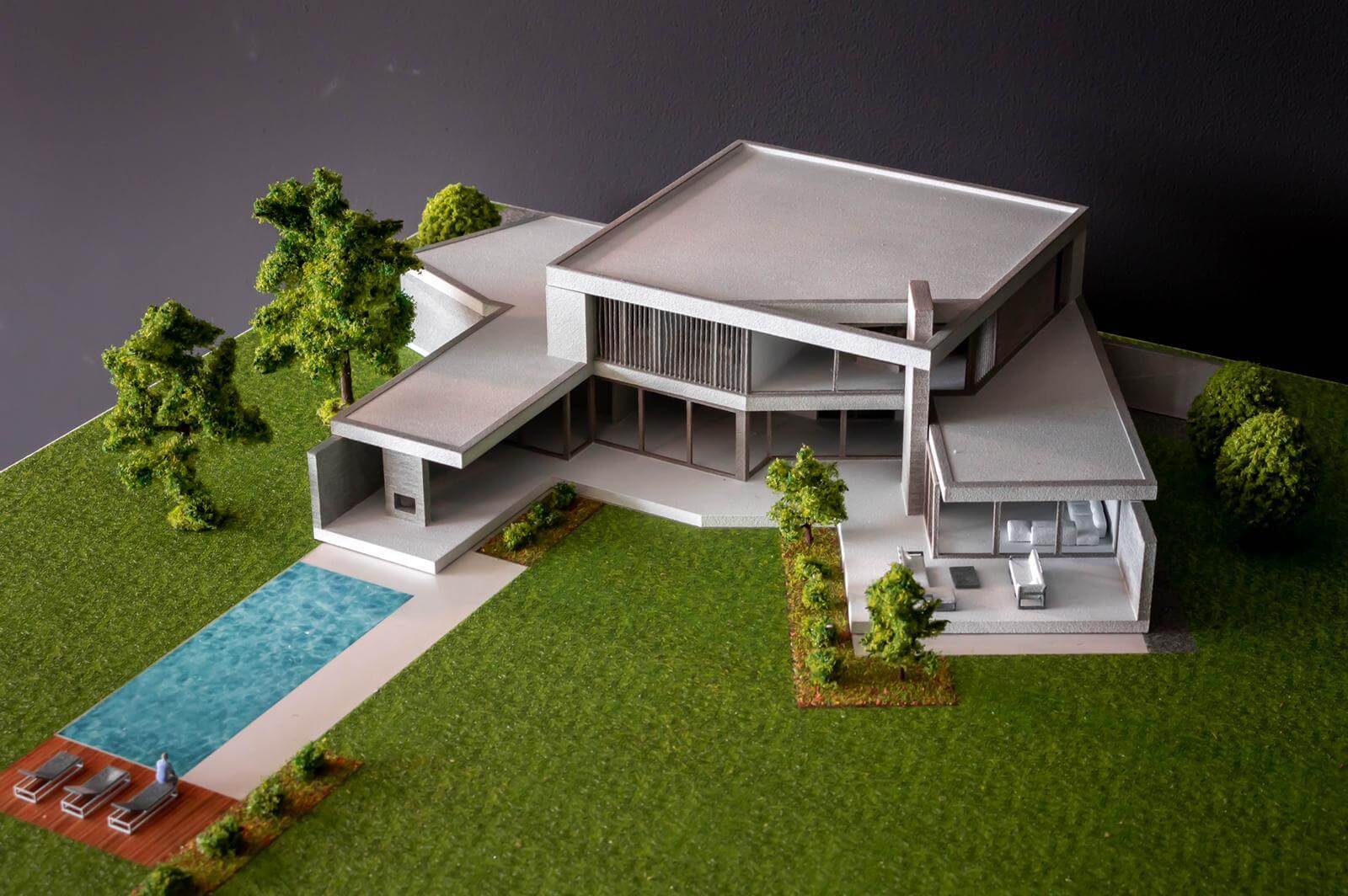
Doing things a little differently has always been characteristic for Marketiger, and it has paid off in the additive manufacturing environment as they are now recognized for experience in everything 3D, and full color, to boot. Established in 2016, the Eindhoven, Netherlands-based company expanded their operations–and opportunities–significantly upon the purchase of their first full-color Mimaki DUJ-553 printer. Pioneering in full-color, they quickly became a supplier for Shapeways too.
The ability to 3D print in ten million colors was unique then, and remains so as few companies have mastered the technology at the level Marketiger has; in fact, owner and founder Maikel de Wit has no problem admitting that they pretty much lived by that first new 3D printer for a year.
As Marketiger advanced from a hobby to a full-grown business in the 3D printing mainstream, suddenly they were dealing with materials on a completely new level, eliminating the need for hand-painting miniatures, and offering much-improved options for gaming and miniature enthusiasts.
“Suddenly, we were able to deliver a product with advanced solutions in full-color technology and materials, far beyond the limitations of sandstone,” said de Wit
Boosting the 3D Printing Process with Scale and Organization
Marketiger quickly became a verified partner in manufacturing with Shapeways. The two companies were able to work together with great success due to the combined levels of industry expertise as well as a parallel perspective. This also meant that Marketiger had access to the Shapeways model in terms of organized 3D printing and running an additive manufacturing factory:
“We were looking for a more professional way of doing things,” said de Wit. “We needed to scale the entire process, and in working with Shapeways we were able to adopt some of the ways their factory runs too–rather than just putting 3D printers on.”
While quality in production is key, de Wit realized the importance of streamlining ordering for their rapidly growing base of customers too. They had outgrown manual processes almost from the start, and sought an extraordinary solution for automation to improve everyone’s experience.
“In the 3D market, there are so many offerings,” said de Wit. “We were dealing with two different aspects in ordering processes as it wasn’t really efficient to have ten of our people sitting behind desks all day just giving out quotes–and customers weren’t willing to wait for an extended amount of time. If they had to wait for three days to get a quote, they would probably just move on to a different material and settle for hand-painting their full-color miniatures.”

Benefiting from OTTO’s Timely Launch
That all changed after a chance conversation with Miko Levy from Shapeways. De Wit was already looking into myriad different sources for streamlining ordering when he mentioned to Levy that they were dealing with overwhelming volume and the need to finesse large numbers of 3D prints out the door efficiently.
Levy explained that Shapeways was releasing a new proprietary software, meant to serve in automating additive manufacturing processes every step of the way–beginning with uploading and best of all for de Wit–offering instant quotes.
With the launch of OTTO, de Wit found a perfect fit for his company’s immediate needs, along with the further ability to diversify and grow business rather than being saddled with extraneous tasks they had no interest in performing.
“We just want to focus on manufacturing,” said de Wit. “There’s no way we could even compete with areas like integration and shipping from Shapeways, and we don’t want to.”
“Now there’s a solution if 10,000 orders come in. We just talk to Shapeways and cover it.”
As soon as a customer is ready to upload a 3D model, the features of OTTO kick in. Available with no startup costs, OTTO creates a new stream of revenue for businesses of all sizes, including traditional manufacturers who may just be getting ready to offer 3D printing services to their customers. Expanding services means expanding profitability, relying on streamlined ordering and production, file analysis and file fixing, and a comprehensive white-label solution that offers a customized web ordering page, expedited shipping, and order tracking.

Sharing Knowledge and Goals for Success in 3D Printing
Shapeways and Marketiger have continued to be a winning combination. In streamlining production processes and talking with their designer customers, Marketiger has been able to put together an entire digital strategy for the present and the future.
“We have a very collaborative way of working together to implement things,” said De Wit. “And I’m very happy with that.”
De Wit realizes that OTTO works for his company intuitively because the additive manufacturing software was developed by Shapeways engineers out of need. Along with appreciating that process, de Wit realizes when it comes to business, it’s not possible to achieve perfection in every area, which is why it is so important to collaborate with other industry companies offering complementary services. He points out, for example, that most companies are not equipped to deal with that customer that wants 50 different products placed from different sides that all need to be sent to the same place. Not only that, problems with compatibility for 3D files are less common and with features like analysis of 3D models and file fixing, printability is ensured.
“All sorts of unusual orders come in daily,” said de Wit. “The features that are built into OTTO for handling this are just smart.”
Marketiger as a whole realized software would be critical to their processes not long after they entered into business. De Wit sees a lot happening in the future for full color 3D printing, along with increasing numbers of designers who will rely on 3D modeling and printing. Applications like gaming continue to trend upward in 3D printing, and de Wit realizes that the ability to handle volume is most important.
For the future, de Wit points out that while technology never sits still, he sees Marketiger continuing to refine their expertise in full color. As for Shapeways and Marketiger, success continues due to their collaborative approach in the 3D printing market.
“It makes sense to work with another company that really knows what manufacturing is,” said de Wit. “The key is in what a software system enables you to do, and how much time you can save in the long run.”
About Shapeways
Shapeways makes world-class 3D printing more accessible to everyone through automation, innovation and digitization. Our purpose-built software, wide selection of materials and technologies, and global supply chain lower manufacturing barriers and speed delivery of quality products.
Shapeways’ digital manufacturing services have empowered more than 1 million customers worldwide to produce more than 20 million parts using 10 different technologies and 90 different materials and finishes. Headquartered in New York City, Shapeways has ISO 9001-compliant manufacturing facilities in Long Island City, N.Y., and Eindhoven, the Netherlands.
Contact us at www.shapeways.com to learn more.
About OTTO
OTTO enables manufacturers to offer 3D printing to their customers without any capital expenditure. Our manufacturing enterprise software is easily integrated, simplifying production of 3D printed parts in any volume with a wide variety of suitable materials and technologies—meeting the most advanced standards for any manufacturing enterprise. Contact us at www.ottosoftware.com to learn more.

